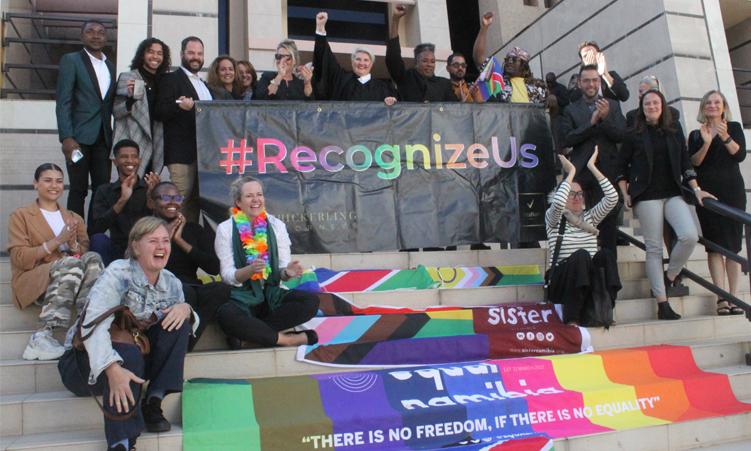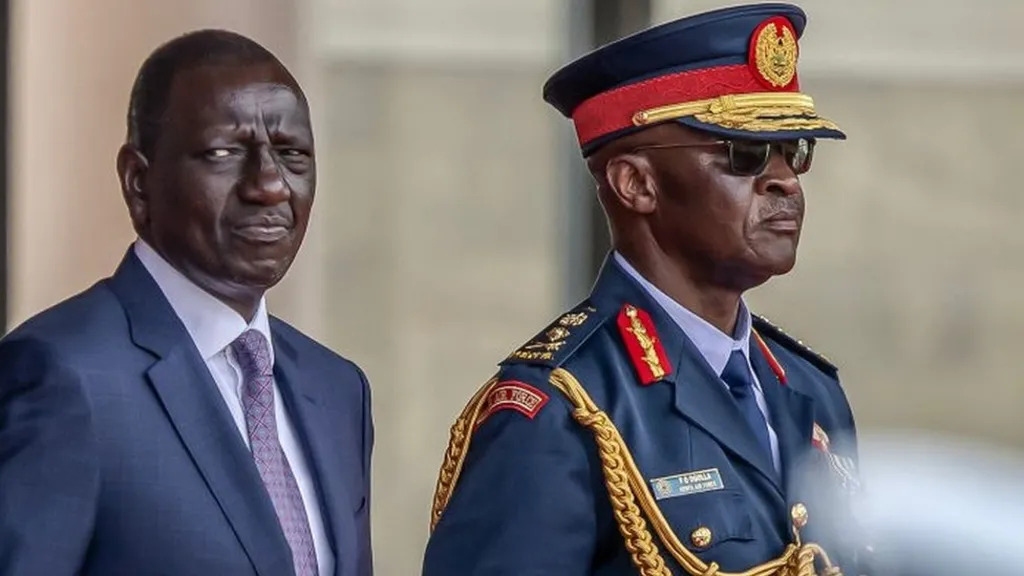The home affairs ministry’s refusal to give official recognition to same-sex marriages validly concluded outside Namibia infringes on the constitutional rights to dignity, equality and freedom from discrimination, the Supreme Court stated in a landmark judgement yesterday.
Four judges of the country’s top court made this finding in a judgement in which the court ruled that same-sex marriages validly concluded outside Namibia must receive official recognition by the Namibian government – the first time that the country’s Supreme Court has stated that same-sex couples are, in terms of the Constitution, entitled to equality under the law.
The court found, in a judgement written by chief justice Peter Shivute and appeal judge Dave Smuts, that the term “spouse” in the Immigration Control Act includes same-sex spouses lawfully married in another country.
The effect of this finding is that non-Namibians in same-sex marriages with Namibian citizens enjoy the same residence rights in Namibia that the Immigration Control Act accords to non-citizens in heterosexual marriages with Namibian citizens.
The court’s decision was given on appeals lodged by Namibian citizen Johann Potgieter and his South African husband, Daniel Digashu, and German citizen Anita Seiler-Lilles, who is in a same-sex marriage with her Namibian spouse, Anette Seiler, against a judgement that three judges of the High Court delivered in January last year.
In that judgement, the High Court – while voicing support for equal rights for people in same-sex relationships – turned down two applications to have the marriages of Potgieter and Digashu and of Seiler-Lilles and Seiler recognised in Namibia and to have residence rights in Namibia granted to Digashu and Seiler-Lilles.
The High Court dismissed the applications on the basis of a judgement of the Supreme Court, which in 2001 decided that same-sex relationships are not recognised in Namibia’s Constitution and that same-sex couples are not protected as a family on an equal footing with heterosexual couples.
The three judges who heard the two couples’ cases in the High Court indicated in their judgement that they disagreed with the Supreme Court’s reasoning in its 2001 decision, but were nevertheless bound by that judgement and could not overrule it.
They further indicated that they would urge the country’s top court to reconsider its reasoning in the 2001 case.
DIGNITY
In its judgement yesterday, the Supreme Court stated that remarks made in the 2001 judgement were not essential elements of the court’s decision in that case, but were peripheral and subsidiary remarks not necessary for that decision and thus were not binding on the High Court or the Supreme Court itself.
On marriages lawfully concluded outside Namibia, the court noted that there is a well-established general principle of common law that such marriages are also recognised in Namibia.
The home affairs ministry, which refused to grant Digashu and Seiler-Lilles residence rights in Namibia based on their marriages to Namibian citizens, did not question the validity of their marriages and has not given any reason relating to public policy why their marriages should not be recognised in accordance with the general principle of common law, the court stated.
The court also said: “[The] recognition of the equal worth of all human beings is at the very root of the Constitution. […] The value attached to dignity is at the very heart of our constitutional framework and fundamental to it as a value of central significance.”
The court went on to note that the impact of the ministry’s differentiation of Digashu and Seiler-Lilles, as spouses in same-sex marriages, was far-reaching and potentially devastating when compared to the treatment of spouses in a heterosexual marriage.
The ministry’s approach to exclude non-Namibian spouses in a validly concluded same-sex marriage from the residence rights granted in terms of the Immigration Control Act infringes on their rights to dignity and equality, the court stated.
Deputy chief justice Petrus Damaseb and appeal judge Elton Hoff agreed with the judgement of Shivute and Smuts.
In a dissenting judgement, appeal judge Sylvester Mainga found that the High Court was bound by the Supreme Court’s 2001 judgement.
The laws of Namibia do not recognise same-sex marriages, and a finding that such marriages should be recognised based on common law principles is not only “fundamentally wrong”, but “trashes the historical, social and religious convictions of the Namibian people”, Mainga stated.
Conceding that the laws of Namibia discriminate against same-sex relationships, Mainga said this is a matter that the country’s parliament, instead of the court, is best placed to assess and to respond to claims to have same-sex marriages recognised.
Senior counsel Raymond Heathcote, assisted by Japie Jacobs, represented the appellants on instructions from lawyer Carli Schickerling.
The government was represented by senior counsel Griffits Madonsela, assisted by Tuhafeni Muhongo.
Stay informed with The Namibian – your source for credible journalism. Get in-depth reporting and opinions for
only N$85 a month. Invest in journalism, invest in democracy –
Subscribe Now!






